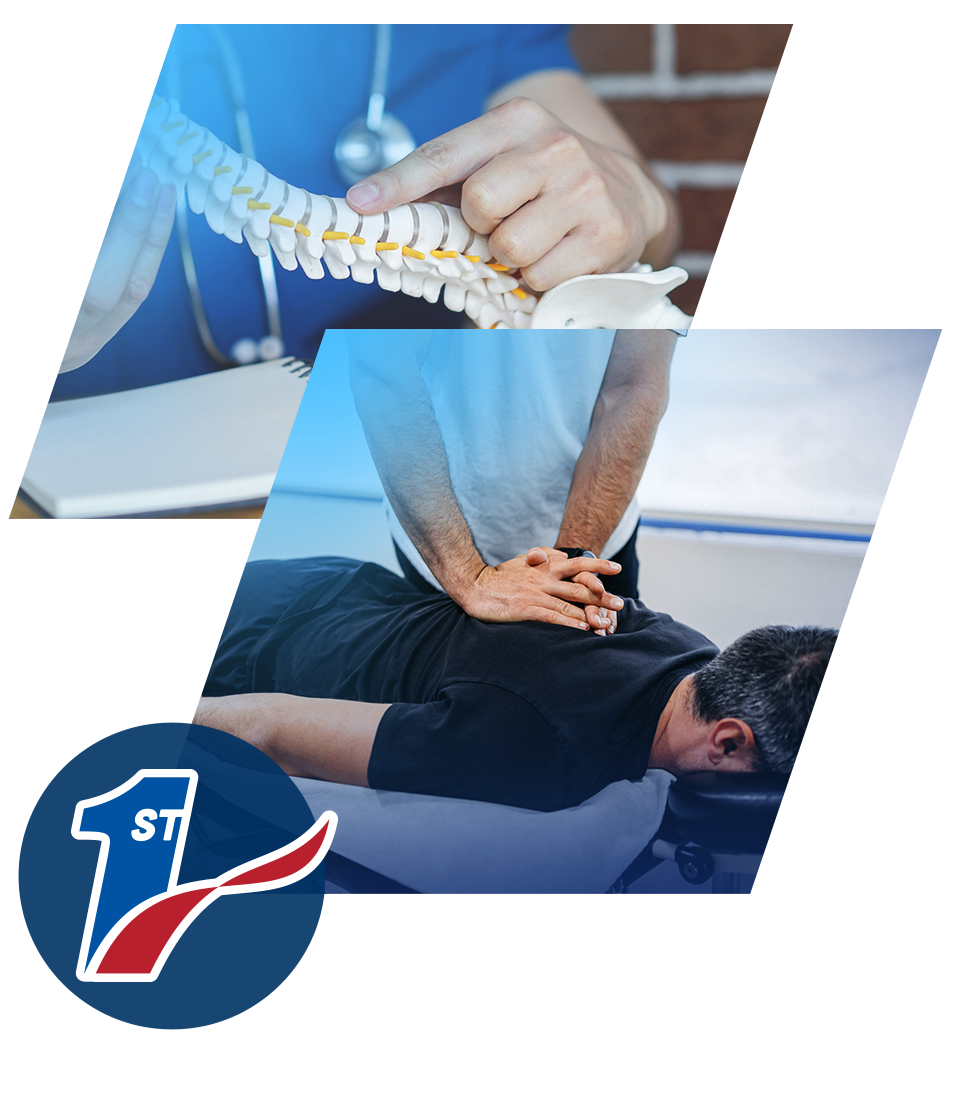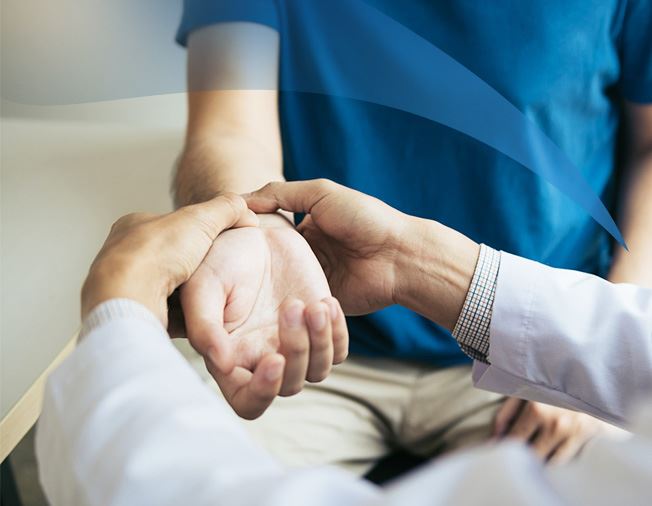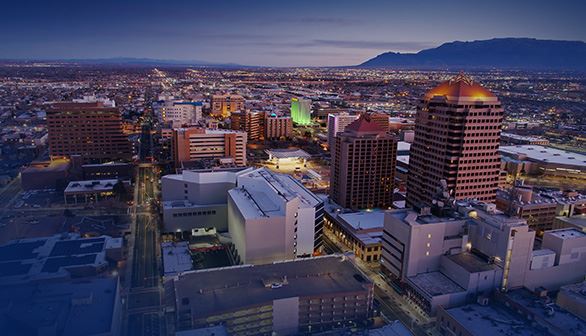

Who Pays for Accident Injuries?
Accidents can turn your life upside down, leaving you with pain, injuries, and a mountain of medical bills. During the chaos, figuring out who is financially responsible for your recovery can seem like an insurmountable task. But it doesn't have to be.
Getting the right care is crucial for your physical and emotional well-being, but the financial burden of medical treatment can be a major obstacle to your recovery. That's why our team at 1st Health Inc. created this guide--to help you understand who might be responsible for paying for your medical expenses after a accident. From insurance coverage to legal options, we'll break down the possibilities so you can focus on what truly matters: your healing.
Call us at (888) 511-0456 to speak with a member of our team and get the support you deserve.


Comprehensive Care for Comprehensive Recovery
There Are Numerous Reasons to Choose Our Team, Including:
At 1st Health Inc., we offer a comprehensive, personalized approach to healing.
We combine advanced diagnostics with effective therapeutic interventions and rehabilitative
treatments, guiding you through your recovery journey. We're committed to your comfort,
well-being, and overall health. Our mission is to help you find relief, improve your
mobility, and connect you with the legal resources you need to cover the costs associated
with your recovery. With unwavering support and compassionate guidance, we'll be
by your side every step of the way.
-
We provide appointments outside of regular business hours for added convenience.
-
We can arrange appointments for the same day you contact us.
-
Delivering Personalized Care and Support on Your Path to Recovery Since 2011
-
Our services are designed to be affordable.

We help accident victims on their road to recovery by providing a holistical approach to their medical journey. We will connect you with the medical profressionals you need after an accident whether that be a doctor, nurse, chiropractor, surgeon. Through every step of your recovery we are there to ensure you are getting the medical care and guidance you need.
Financial Assistance and Seeking Damages After an Accident
One potential avenue for financial assistance is seeking damages for your injuries. Depending on the details of your accident, you may be eligible to file a claim against the responsible party or their insurance provider. This could include coverage for medical bills, lost wages, pain and suffering, and other related expenses.
Determining eligibility for damages involves a thorough evaluation of your accident's circumstances, the extent of your injuries, and the insurance policies in place. We can work closely with your attorney to produce evidence that could be critical to the success of your case, like medical evaluations, as they guide you through the process of seeking compensation for your injuries.
It's important to note that the process of seeking damages is state-specific, as each state has different laws governing auto accidents and personal injury claims. For example, in New Mexico, the state follows a "comparative fault" rule. This means that if you are found partially at fault for the accident, your compensation may be reduced by your percentage of fault.
For personalized assistance and to learn more about how you can seek damages for your auto accident injuries, contact 1st Health Inc. at (888) 511-0456. We are here to support you every step of the way.
How Can an Attorney Help You Get Your Treatment Paid For?
How 1st Health Inc. Works With Your Legal Team
Our goal is to work closely with legal professionals who can advocate for your rights, handle insurance claims, and help you obtain the compensation you deserve, allowing you to focus on your health and well-being.
-
Case Evaluation:An attorney can meticulously assess the specifics of your accident, including police reports, medical records, and other evidence, to gauge the likelihood of a successful claim.
-
Evidence CollectionThey can gather vital evidence such as witness statements, accident scene photographs, and expert testimonies to construct a robust case on your behalf.
-
Insurance NavigationAttorneys are adept at negotiating with insurance companies that often aim to minimize payouts. An attorney can negotiate with insurers on your behalf, seeking to maximize your claim.
-
Claim FilingYour attorney can manage paperwork and procedural documents, taking care to see that claims are filed accurately and within necessary deadlines.
-
Legal RepresentationIf you need to take your case to court, an attorney can represent you. Their experience in litigation could mean the difference between a paltry payout and the money you need to cover your losses.
-
Compensation MaximizationAttorneys know how to fight for compensation not just for immediate medical expenses but also for long-term needs, including ongoing treatment, rehabilitation, lost wages, and pain and suffering.





Do I Need to Pay for My Medical Care After an Accident?
Understanding the financial responsibilities of your medical care following an accident can be confusing. When reviewing whether you need to pay for your treatments, the details often hinge on whether you are found at fault or not at fault for the accident.
If you are not at fault, the insurance company of the at-fault driver typically covers your medical costs through their bodily injury liability coverage. However, the process can sometimes be lengthy, as it involves an investigation to establish fault and validate claims.
When you are at fault, your medical expenses may be covered by your auto insurance policy, specifically through Personal Injury Protection (PIP) or MedPay coverage, depending on what your policy includes. This coverage can help with medical bills, regardless of who is at fault. PIP often extends beyond medical bills to include lost wages and other damages, making it a comprehensive benefit.
In no-fault states, PIP is mandatory and will cover your medical expenses regardless of fault. This means you can receive prompt medical attention without waiting for a fault determination.
If you have health insurance, it can serve as a crucial backup for covering medical expenses not fully addressed by auto insurance. Health insurance can help handle co-pays, deductibles, and ongoing medical needs beyond your auto insurance's scope.
Understanding these distinctions will help you navigate the financial landscape post-accident, allowing you to focus more on your recovery and less on the complexities of insurance and payments.
To schedule an appointment at 1st Health Inc., call (888) 511-0456 or contact us online today.
How are Medical Bills Calculated After an Accident?
These Bills Are Calculated According to Numerous Factors, Including:
Following an auto accident, medical bills can add up quickly, leaving you with a mountain of expenses. Although these expenses can quickly escalate, there may be financial relief available based on the specific circumstances of your accident.
-
Emergency Room VisitsImmediate medical attention is often crucial right after the accident to assess and stabilize any injuries. This may include initial assessments, treatments, and potentially life-saving interventions.
-
Diagnostic TestsX-rays, MRIs, CT scans, and other diagnostic tests are required to identify and evaluate the extent of injuries accurately. These tests can help in developing an appropriate treatment plan.
-
Surgery CostsExpenses for any necessary surgical procedures, including pre-operative preparations, the surgery itself, and post-operative care, which can be substantial depending on the complexity of the operation.
-
Hospital StaysCosts associated with extended care and monitoring at the hospital, which may include room charges, nursing care, and additional treatments or tests during your stay.
-
Medical EquipmentItems such as braces, crutches, or wheelchairs needed for recovery can be essential for mobility and support during the healing process. This also includes any custom-fitted or specialized equipment.
-
RehabilitationPhysical therapy and chiropractic care to facilitate recovery are often needed to restore function, improve mobility, and reduce pain. Rehabilitation may involve a series of sessions over several weeks or months.
-
Follow-Up AppointmentsVisits to your primary care physician or specialists for ongoing care are necessary to monitor progress, adjust treatments, and ensure proper healing. These appointments help prevent complications and promote recovery.
-
MedicationsPrescription drugs required to manage pain and aid in healing, including antibiotics to prevent infection, pain relievers, and medications to reduce inflammation or assist in other aspects of recovery.
-
Home CareServices needed for at-home recovery support, including nursing and personal care. This may involve assistance with daily activities, wound care, administering medication, and ensuring comfort and safety during the recovery period.



